- About
- Courses
-
Destinations
EuropeNew Zealand
- Journal
- Contact
Waking up in the mountains every morning, landing new tricks in the park and skiing fresh powder with friends, then reliving it all in the bars each evening: doing a ski or snowboard season is epic but what’s the best way to spend your time?
Should you work in a chalet, find some bar work, do your instructor training or become a ski bum? To help you decide, we’ve assessed the pros, cons, pay and shred time for the most popular options in resort.
INSTRUCTOR TRAINING
Doing your ski or snowboard instructor training is an awesome way to spend a season, whether you’re pursuing a career as an instructor, or simply searching for a way to take your riding to the next level. Nonstop offer courses in Canada, New Zealand and France that range from 3 weeks to the whole season to suit all levels of skier or snowboarder.
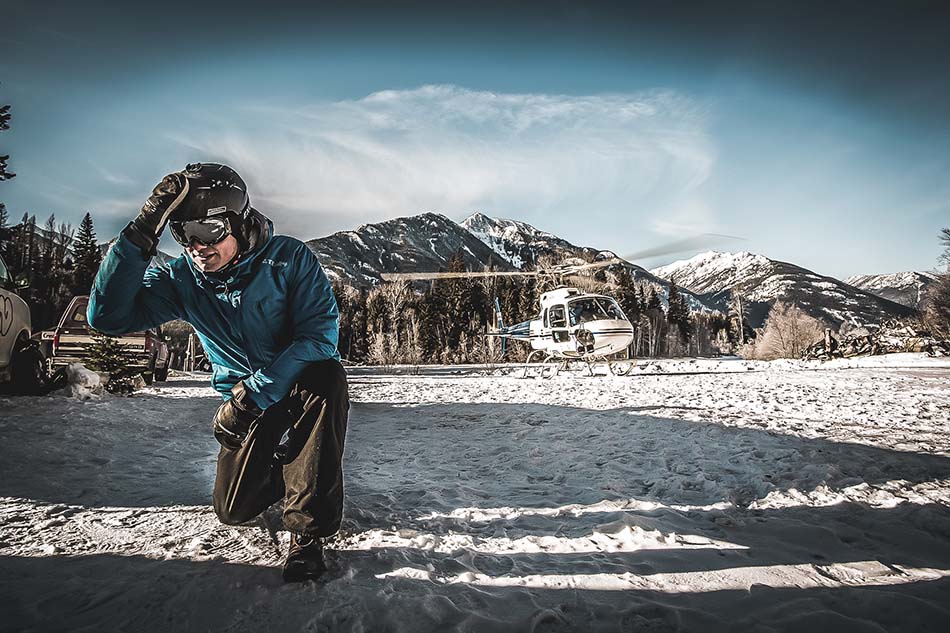
What to expect: Each day is different but you’ll spend the majority of your time with top pros perfecting your skills on the mountain, from piste to powder, steeps and park. Courses focus on training for a set of qualifications and you’ll need to work hard to reach the required standard. Food, accommodation and social events are part of the package, and you don’t need any experience to sign up.
With an epic social life, stacks of shred time, and a once-in-a-lifetime opportunity to massively boost your mountain skills, this has to be the ultimate way to spend a season.
Pros: Taught by some of the best instructors in the business, your skiing or snowboarding skills will rocket. You’ll be hanging out with a readymade group of like-minded snow fanatics, and you’ll experience everything from cat skiing and road trips to bar crawls and fancy dress.
Cons: You won’t be earning during your training, and you’ll need to pay for your course in advance. This means saving up beforehand or breaking into your savings – fear not, it’s worth it.
Pay and perks: There’s no pay, obviously, but if you do an internship style course. you could train and get paid as an instructor all in the same season. The biggest perk is that your skiing or riding will improve beyond belief, and you’ll walk away with qualifications that allow you to do one of the best jobs in the world.
Shred time: For time on the mountain, you simply can’t beat it. You’ll be training on the hill every single day and you’ll never miss a powder day.
The verdict: With an epic social life, stacks of shred time, and a once-in-a-lifetime opportunity to massively boost your mountain skills, this has to be the ultimate way to spend a season.
CHALET HOST
Working as a chalet host is a classic choice and is easy to get into if you’ve set your sights on the European Alps. Apply to chalet companies in summer or autumn and you’ll have a good chance of landing a job for the winter. Most will train you up with hosting and catering skills, so you won’t need much prior experience.

What to expect: You’ll usually work six days a week, with one day off. After your morning duties (making breakfast, cleaning, baking a cake) you’ll have a few hours free before it’s time to prepare the evening meal. Once a week is ‘changeover day,’ which involves making breakfast for outgoing guests, deep cleaning the chalet, and welcoming new guests in the evening – you could be working 7am to 10pm that day.
Pros: Your accommodation, lift pass, transport and food are usually provided, so all you’ll need to do is turn up at the airport. Some companies even sort out your insurance and equipment. You’ll be working in a team of other chalet staff, so expect readymade friends and a great social life.
It can be hard work. If you socialise every night and still want to get on the mountain each day, something will have to give.
Cons: It can be hard work. If you socialise every night and still want to get on the mountain each day, something will have to give. People often fall into one of two categories: dedicated drinker, or dedicated skier/snowboarder.
Pay and perks: Wages are low, but that’s not a huge problem as your food, accommodation and lift pass are part of the deal. Tips help but can’t be relied on in Europe.
Shred time: A few hours most days (between your morning and evening duties), plus one full day off. No shred time on changeover days.
The verdict: Chalet work is a good option if you’re strapped for cash and like the idea of having everything organised for you. Expect a great social life but you’ll need to muster every last inch of motivation if you want to see your skiing/snowboarding really progress.
RESORT REP
Resort reps are the main point of contact for clients, so this role comes with a fair bit of responsibility. Experience of working with customers can help with your application.
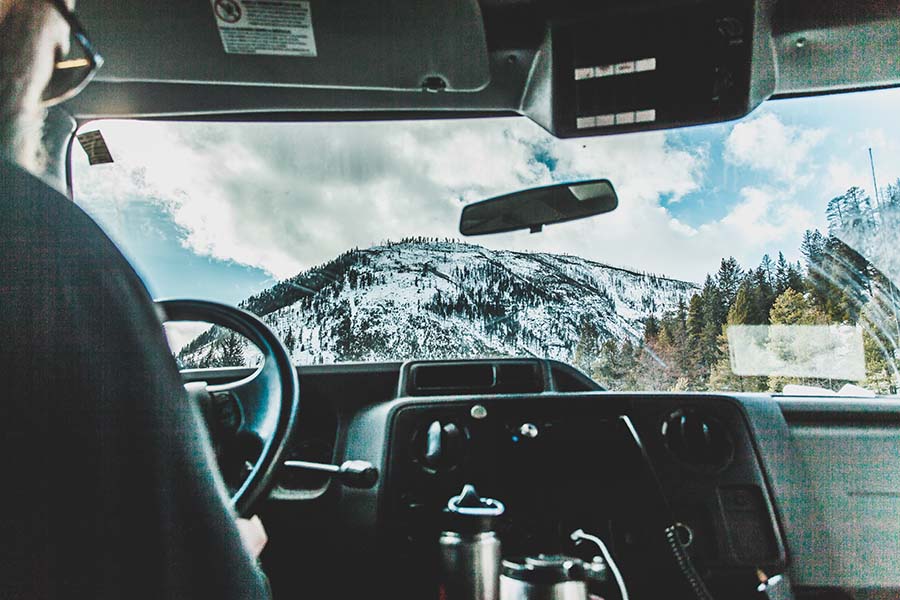
What to expect: On a typical week, you could be arranging airport transfers, equipment hire and après activities, as well as dealing with difficult requests, and accompanying guests on the slopes. Accommodation, food and ski pass are often provided.
Pros: If you love working with people you’ll get a buzz from being a rep and, at times, you may be getting paid to ski or snowboard. This job looks good on your CV if you want to work in hospitality or climb the managerial career ladder. Free meals and drinks with guests are another bonus.
Time on the hill can vary massively from week to week: get a group of easy-going, low-maintenance clients, and you could find yourself with lots of slope time.
Cons: You’ll often be on-call 24 hours a day, so be prepared to drop everything to deal with client requests, even on a powder day. Hangovers and drunken antics won’t go down well in the customer-facing role.
Pay and perks: Expect to get paid more than chalet hosts and bar staff. You’ll also have the added perk of freebies and discounts at the bars and restaurants you bring clients to. You won’t get rich but expect more than a bit of beer money.
Shred time: Time on the hill can vary massively from week to week: get a group of easy-going, low-maintenance clients, and you could find yourself with lots of slope time. Other weeks could see you dealing with a never-ending stream of client requests.
The verdict: Best suited to people who want some responsibility and get a buzz from working with customers – so much so that you’re willing to sacrifice some snow time.
BAR WORK
Another classic option for European seasons, bar jobs are harder to come by than chalet work – there are fewer jobs and more people going for them. It helps to have prior experience or to know somebody in the bar. Turning up in a resort early and speaking directly to the bar staff is another good way to get a foot in the door.
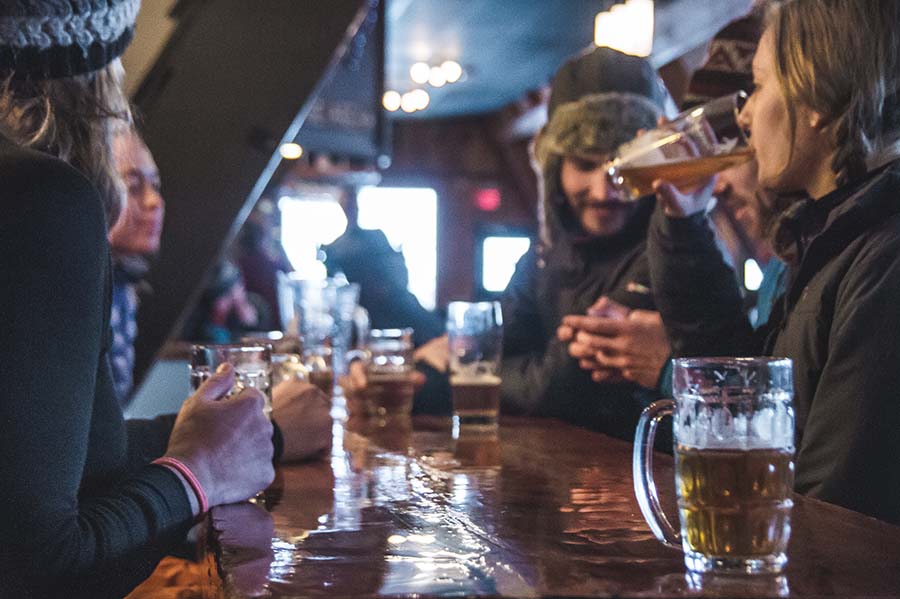
What to expect: A typical six-day working week usually involves a pattern of different shifts to cover après ski and late nights. You’ll work most evenings and will often finish in the early hours. Cleaning the venue (and toilets) is part of the role, as is re-stocking the bar.
Pros: Super sociable, bar staff are everyone’s best friend. Unlike chalet work there are no early mornings, and the free booze is an obvious plus.
Cons: Late nights and free drinks can take their toll – working six days a week can feel relentless at times. Party animals will have no problem but, if you don’t like burning the candle at both ends, consider something else.
Pay and perks: Bar work is usually better paid than chalet work but, depending on the company, you may have to fork out for food and accommodation. Tips can be excellent in the US or Canada but are almost non-existent in Europe.
Shred time: You’ll rarely have to work an early morning so, in theory, you could be up for first-lifts every day. In reality, you’ll probably be sleeping-off a hangover or lying-in after a late shift, with one full day off to sleep or shred.
The verdict: Great for sociable types but you’ll need serious motivation to get out on the mountain every day. With all that boozing, bar staff are the most likely to waste away their season, despite having plenty of free time in the day.
BEING A SKI BUM
Endless days on the mountain and late nights in the local bars, with no responsibilities and no one to answer to: it’s a hard life being a ski bum. Anyone can do it, so long as you have enough money to fund your trip.
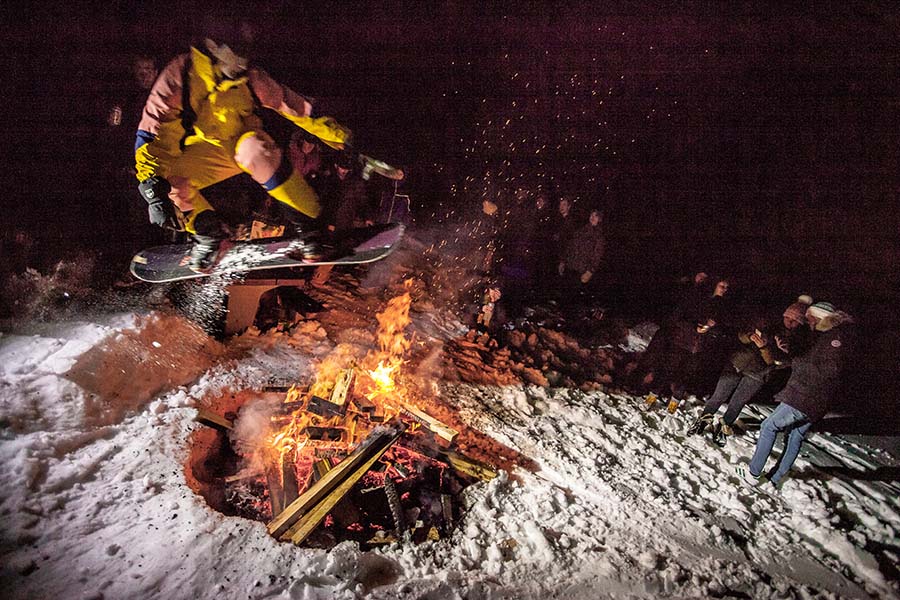
What to expect: Most ski bums live off savings, while others pick up ad-hoc jobs like peak season bar work or chalet cleaning on changeover days. You’re free to shred and socialise as much as you want, or until the money runs out. Obviously, you need to arrange everything yourself, from flights and accommodation to food and lift pass.
Pros: Spend as much time as you like on the slopes and in the bars, with nothing to stand in your way on a powder day.
Cons: You won’t earn any money, so you need to arrive armed with a stack of savings. You’ll be paying full price for everything, from your food to your lift pass, and you’ll have to put yourself out there to make friends and build a social life.
Shred time: Unlimited. Put the effort in and your skiing or snowboarding could get a serious boost. Unlike instructor training you won’t get any coaching or qualifications, so you’ll need to push yourself to improve – ride with people who are slightly better than you and try to glean some tips.
Pay and perks: There’s zero pay and no guaranteed perks but, if you make friends in the right places, you should be able to charm your way into seasonaire discounts at the local bars.
The verdict: Being a ski bum can be the dream for some but the lack of structure isn’t for everyone. Without any work chums, you need to be confident and sociable enough to make friends, find people to shred with and make the most of your season.
WORKING AS AN INSTRUCTOR
Once you’ve completed your instructor training, you can start applying for instructor jobs in locations around the world. On a Nonstop course, you’ll attend career seminars and will start making contacts within the industry. The application process varies between different countries and resorts, so Nonstop will fill you in on the best approach. We've even got a courses in Fernie and Banff that lead to a guaranteed job.
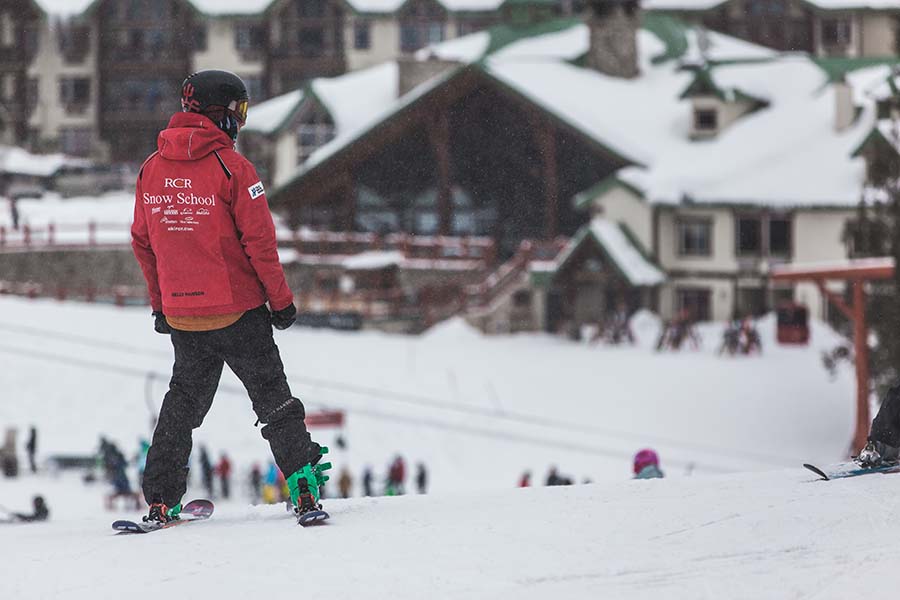
What to expect: Employed by a ski school, you’ll be assigned lessons by a superior. As a rookie, you’ll most likely teach groups of beginners and children but you may also teach individuals and adults. The amount you work depends on the demand and your experience. During peak season weeks you could work 5-7 days with evenings and lunchtimes free, or far less at quieter times.
Pros: Getting paid to ski or snowboard is an incredible way to live, and furnishing people with new snow skills is hugely rewarding. The social aspect is great too, and there’s never a shortage of other instructors to shred with.
Getting paid to ski or snowboard is an incredible way to live, and furnishing people with new snow skills is hugely rewarding.
Cons: At the end of the day, it's still a job. There will be tough days when your ski bum friends are playing in the powder while you’re teaching beginners on the nursery slopes; and some clients are just born to test you. But bad days are rare – a tough morning will usually be balanced out by an epic afternoon.
Shred time: If you want to spend as much time on snow as possible, this is the job for you. Early mornings, lunchtimes and days off give you time to shred, and most schools provide regular training sessions to push your riding further.
Pay and perks: Pay varies from country to country and resort to resort. In North America, rookie level 1 instructors earn around $12-15 an hour basic, plus commission for private lessons. For experienced instructors it’s more like $17-20. Rates are similar or higher in other parts of the world. France offers the best pay at around $28-65/hour but starting out is harder.
The dream? Getting paid to ski or snowboard has to be the best job in the world. You’ll improve your riding, meet loads of new people and make a real difference to their lives. Work as an instructor and you’ll be living the dream.
DECIDED?
With endless shred time, a readymade social scene, and a unique opportunity to truly progress your snow skills, enrolling on a ski instructor course / snowboard instructor course is the ultimate way to spend a season. Get in touch with our team for more info.
We look forward to speaking with you.